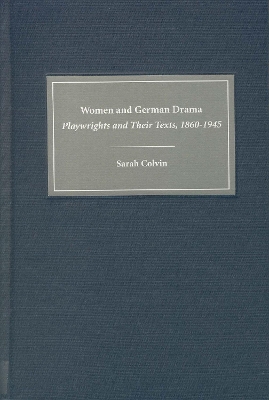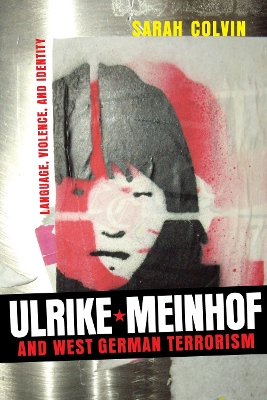Studies in German Literature, Linguistics, and Culture
2 total works
For women, according to the contemporary Austrian dramatist Elfriede Jelinek, writing for the theater is an act of transgression. The idea that drama as a grand public genre resists women writers has become established in recent scholarship. But Jelinek herself has won the Buchner Prize, the most prestigious award in German letters, and there is a wealth of dramatic work by women from the 20th century and before: both facts seem to contradict the notion ofwomen's exclusion from drama. So why has drama by women appear to have been written against the odds, and why has it, until very recently, been missing from literary histories? This book looks in detail at women's playwriting inGerman between 1860 and 1945, and at its reception by critics. Many of the works considered have never before been analyzed by modern scholarship; others, notably the plays of Marieluise Fleisser and Else Lasker-Schuler, are wellknown, but are read here for the first time in the context of earlier dramatic work by women. Sarah Colvin seeks modes of reading that do justice both to the dramatic texts as performance texts, and to the sense of "otherness" experienced by the woman writer in a male-dominated literary and theatrical environment. She concludes that an understanding of the techniques developed by women playwrights of the nineteenth and early twentieth centuries canenrich our reading not only of Fleisser and Lasker, but of contemporary dramatists such as Jelinek. If all the world's a stage, playwrights can theoretically be seen as in control of the world they create; this book asks to what extent women dramatists manage to use the space of the drama to reflect the world that they experience.
Sarah Colvin is Reader in German at the University of Edinburgh.
Sarah Colvin is Reader in German at the University of Edinburgh.
In 1970 Ulrike Meinhof abandoned a career as a political journalist to join the Red Army Faction; captured as a terrorist along with other members of the group in 1972, she died an unexplained death in a high-security prison in 1976. A charismatic spokesperson for the RAF, she has often come near to being idealized as a freedom fighter, despite her use of extreme violence. In an effort to understand how terrorism takes root, Sarah Colvin seeks a dispassionate view of Meinhof and a period when West Germany was declaring its own "war on terror." Ulrike Meinhof always remained a writer, and this book focuses on the role of language in her development and that of the RAF: how Meinhof came to justify violence to the point of murder, creating an identity for the RAF as resistance fighters in an imagined state of war that was reinforced by the state's adoption of what Andreas Musolff has called "war terminology."But its all-powerful identity as a fighting group eroded the RAF's empathy with other human beings -- even those it once claimed to be "fighting for." It became a closed unit, self-justifying and immobilized by its own convictionthat everything it did must be right. This is the first specialized study of Meinhof and the RAF in English -- which is remarkable given the current interest in the topic in both Europe and the U.S.
Sarah Colvin is Professor and Eudo C. Mason Chair of the German Department at the University of Edinburgh, UK.
Sarah Colvin is Professor and Eudo C. Mason Chair of the German Department at the University of Edinburgh, UK.

